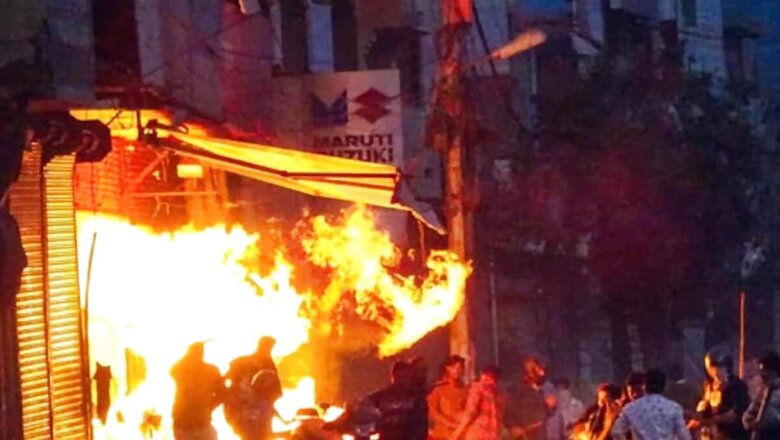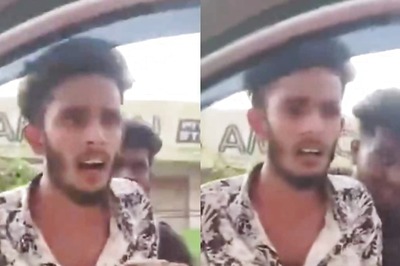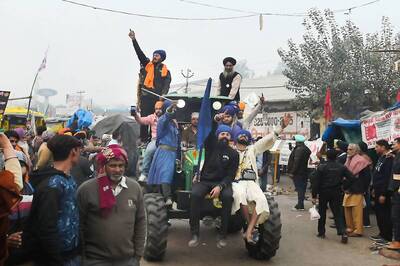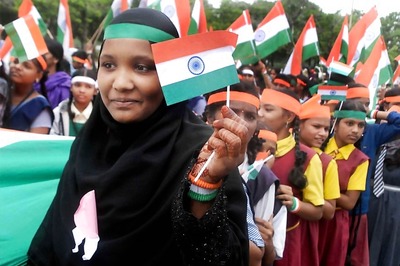
views
The Supreme Court on Tuesday dismissed the pleas by the Delhi Police against the bail granted in June 2021 to three student activists in a case related to the 2020 Northeast Delhi riots, saying they are out on bail for almost two years and it sees no purpose in keeping the matter alive.
A bench of Justices S K Kaul and A Amanullah passed the order while hearing the pleas filed by police challenging the Delhi High Court’s June 15, 2021 verdicts granting bail to activists Natasha Narwal, Devangana Kalita and Asif Iqbal Tanha in a case related to communal violence during the protests against the Citizenship (Amendment) Act (CAA).
The apex court noted that in its June 18, 2021 order passed in the matter, it had observed that the high court verdicts shall not be treated as precedents and may not be relied upon by any of the parties in any of the proceedings.
“We close the proceedings,” the bench said, adding, “We make it clear that we have not gone into the legal position regarding statutory interpretation one way or the other.” The bench observed the whole problem is that bail matters are argued by the parties as if the final prosecution has to be decided.
“In a bail matter, everything is observed and argued when it is to be only considered whether a person is required to be enlarged on bail or not,” Justice Kaul observed.
At the outset, a counsel appearing on behalf of the police requested the top court to hear the matter next week or tomorrow.
“No. We have accommodated you several times in this matter,” the bench said and referred to its January 17 order, in which it had recorded that Solicitor General Tushar Mehta, who was appearing for the police, was before a constitution bench and thus, a deferment was sought on that day.
The bench said it had in its January 17 order made clear that if alternative arrangements have to be made by the government, they may do so for the next date of hearing.
The counsel told the bench that an alternative arrangement was made but due to some personal difficulty, an additional solicitor general was unable to appear on Tuesday.
“It is our indulgence which has created this problem. Nobody in the Supreme Court used to seek such adjournments. There is a limit. Sorry,” the bench said.
Later, the solicitor general appeared in the matter and said the high court has “virtually declared the Unlawful Activities (Prevention) Act (UAPA) unconstitutional” in these verdicts.
When the bench said the problem was that bail matters are being argued as if the final prosecution has to be decided, Mehta said, “But the judges are also deciding as if trials are concluded.” The apex court told Mehta that its order of June 18, 2021, already protects the state.
“In our view, the only issue which is required to be examined in such matters is whether, in the factual scenario, the accused is entitled to bail or not. It is this argument which persuaded us to issue notice on June 18, 21 and to observe that the impugned judgement shall not be treated as a precedent and may not be relied upon by the parties …,” the bench said.
“The respondents (Narwal, Kalita and Tanha) have been on bail now for almost two years. We see no purpose in keeping this matter alive,” it said.
The bench observed that one of the applicants, who is a co-accused in the matter, has filed an application saying that the June 18, 2021 observation by the apex court was coming in the way of seeking bail on parity.
“If the co-accused is entitled to bail on parity, that is for him to make out and for the court to consider,” the bench observed, adding that purpose of the interim order of June 2021 was that the expounded legal principle regarding statutory interpretation in a bail matter should not be utilised in these proceedings or any other proceedings.
Mehta said the apex court may say that the high court verdicts in the matter be not treated as a precedent.
“That we have already said,” the bench said, adding, “In fact, a bail order can never be cited as precedent except for parity.” During the hearing in the matter in July 2021, the apex court had indicated its reluctance to consider the aspect of cancellation of bail granted to the three activists, who were booked under the provisions of the stringent anti-terror law UAPA.
It had been termed as troubling that the bail petitions were being argued at length debating the provisions of the law.
The top court had earlier expressed its displeasure over the high court discussing the entire anti-terror law UAPA in a bail matter.
Earlier, the police had argued that 53 people had died and over 700 were injured during the riots which took place at a time when the then US president Donald Trump and other dignitaries were in the national capital.
The high court had granted them bail, saying in anxiety to suppress dissent, the State has blurred the line between the right to protest and terrorist activity, and if such a mindset gains traction, it would be a “sad day for democracy”. Kalita, Narwal and Tanha are accused in four, three and two cases, respectively, related to the communal riots that broke out on February 24, 2020.
Read all the Latest India News here


















Comments
0 comment